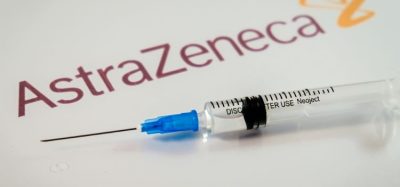Single-dose vaccine could provide faster protection against cholera
Posted: 12 December 2017 | Dr Zara Kassam (European Pharmaceutical Review) | No comments yet
Researchers have shown that giving a stronger single-dose of a live oral vaccine could be an effective tool in controlling outbreaks of cholera…


Researchers have shown that giving a stronger single-dose of a live oral vaccine could be an effective tool in controlling outbreaks of cholera.
Researchers at the University of Maryland School of Medicine (UMSOM) assessed the effectiveness (ability to stimulate vibriocidal antibody, an immune response that correlates with protection) of a single high-dose of live cholera vaccine CVD 103-HgR, which was developed by UMSOM’s Center for Vaccine Development (CVD) and licensed and manufactured by PaxVax, versus the standard two-dose killed vaccine approach.
While the two-dose inactivated vaccine approach has been used and made available for protecting against seasonal increases in cholera cases, a stronger single-dose live oral vaccine approach may be a more effective way to rapidly protect individuals in big outbreaks, the research found.
“Immunization with a single-dose cholera vaccine that could rapidly protect people in low-income countries who have not previously been exposed to cholera would be a significant asset in helping control outbreaks and lower mortality rates,” said Dr Myron M. Levine, the Simon and Bessie Grollman Distinguished Professor and Associate Dean for Global Health, Vaccinology and Infectious Disease at UMSOM and senior author in the study. “Given the highly encouraging results, we envision that as a matter of priority high-dose CVD 103-HgR will now be evaluated more completely in low-income countries menaced by cholera.”
Cholera transmission is endemic in many areas of Africa, Asia and the Caribbean. In severe cases, patients pass large amounts of diarrhoea that causes rapid dehydration and ultimately death if left untreated. This year, the World Health Organization estimated that in Yemen alone there have been a million cases of cholera.
Researchers will now study whether the single high-dose live vaccine is suitable for initiating vaccination campaigns early during outbreaks to nip them in the bud, as well as for preemptive vaccination to diminish the burden of expected seasonal increases of endemic cholera in countries where this disease persists as a public health problem. Finally, since young children less than 5 years of age suffer the highest incidence of cholera but are less well protected than adults by the current two-dose oral killed vaccines, it will also be important to assess the effectiveness of a single high-dose of CVD 103-HgR live vaccine in protecting young children.
“The data published in Clinical and Vaccine Immunology is a first step in demonstrating the potential utility of a new formulation of Vaxchora (CVD 103-HgR) at a higher dose in endemic settings,” according to Nima Farzan, Chief Executive Officer and President of PaxVax.
“Vaccine development is a critical part of our research here at the University of Maryland School of Medicine,” said UMSOM Dean E. Albert Reece, MD, PhD, MBA, who is also Executive Vice President, Medical Affairs, University of Maryland and the John and Akiko K. Bowers Distinguished Professor. “For two centuries the school of medicine has been at the forefront of treating diseases among the most underserved areas.”
Related topics
Related organisations
PaxVax, University of Maryland School of Medicine (UMSOM), World Health Organization (WHO)









